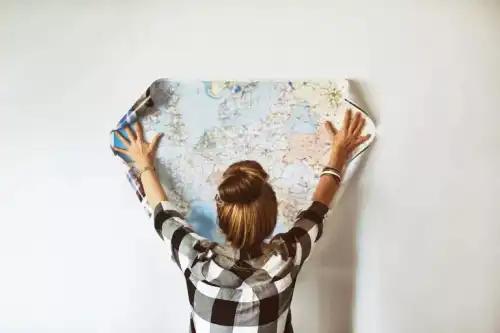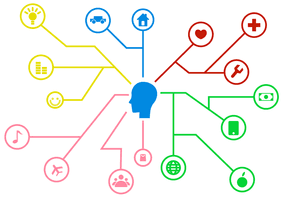Mental Maps: You Don't Need a GPS to Get Where You Want to Go
Curated from: thoughtco.com
Ideas, facts & insights covering these topics:
5 ideas
·893 reads
3
Explore the World's Best Ideas
Join today and uncover 100+ curated journeys from 50+ topics. Unlock access to our mobile app with extensive features.
Mental Maps
A mental map is a first-person perspective of an area that an individual possesses. This is a type of subconscious map that shows the individual what places look like and how to interact with them.
Every individual has their own mental map, a large and a small one, wherein the former is used to recall towns, states, and countries; while the latter is to navigate smaller areas like your home, or the way to your favorite cafe. We subconsciously use our mental maps to plan all of our activities.
44
405 reads
Behavioral Geography
There is a division in psychology that looks at human and animal behavior, that division is called behaviorism. This theory assumes that every single behavior done is a response to environmental stimuli.
With this understanding, behavioral geography is seeking to understand how people build, how they change, and how the landscapes, in particular, affect and influence the behavior of both humans and animals.
36
223 reads
Conflicts Caused by Mental Maps
- The possibility of every individual having different mind maps is likely. This is due to the fact that mental maps aren't just the perceptions of your own spaces, but they are also the perceptions of places you've never been to before.
- Mental maps are based on assumptions and conjecture which can affect human interaction significantly.
- Borders of neighboring countries may see boundaries differently.
35
113 reads
Media and Mental Mapping
Since mental maps can be created for places you've never been to for social media, news outlets, and even movies are able to depict faraway places for people to vividly create their own mental maps of them.
However, most media representations of these places are not entirely accurate and will only cause the formation of distorted or error-filled mental maps. Such in the case of the map we've all grown to see, the Mercator's map, wherein for centuries it has depicted the size of Africa wrongly.
37
77 reads
The Media's Effect on Mental Map Creation
As humans, we often subconsciously attach emotion to the mental maps we've created along with the infromation that we've come to know, whether it may be accurate or not, this significantly alter's one's perception.
We must keep in mind that we shouldn't fully trust the infromation that is delivered to us. This is a deplorable issue that is never to be taken lightly like biased crime statistics, because regardless of where it may be from, it has enough power to influence over someone's choices.
36
75 reads
IDEAS CURATED BY
David R.'s ideas are part of this journey:
Learn more about problemsolving with this collection
Ways to improve productivity
Strategies for reducing stress
Tips for managing email overload
Related collections
Similar ideas
6 ideas
12 ideas
The Brain as a Prediction Machine: The Key to Consciousness?
psychologytoday.com
Read & Learn
20x Faster
without
deepstash
with
deepstash
with
deepstash
Personalized microlearning
—
100+ Learning Journeys
—
Access to 200,000+ ideas
—
Access to the mobile app
—
Unlimited idea saving
—
—
Unlimited history
—
—
Unlimited listening to ideas
—
—
Downloading & offline access
—
—
Supercharge your mind with one idea per day
Enter your email and spend 1 minute every day to learn something new.
I agree to receive email updates

